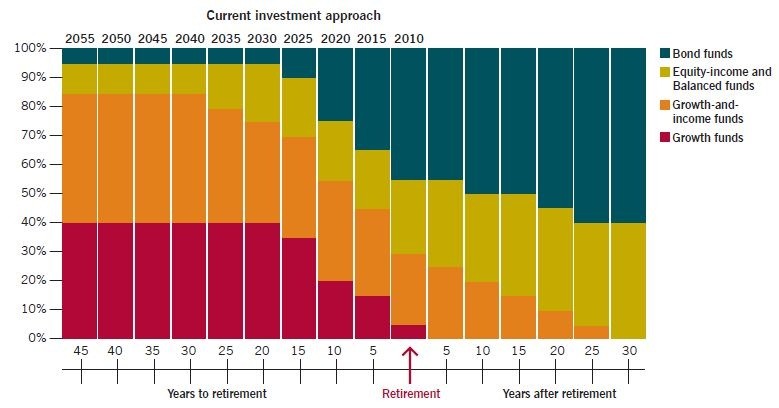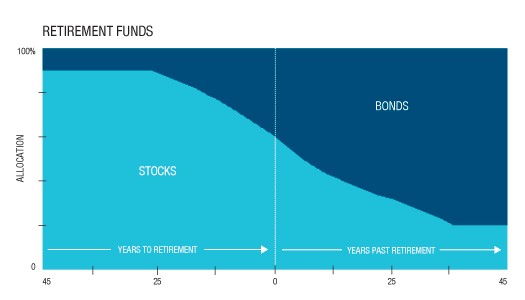Who Actually Benefits From Target Date Funds
Post on: 13 Январь, 2017 No Comment

While much has been written about the downside of target date retirement funds, these one-size-fits-all funds have their place in the world of retirement planning.
What makes them so tricky? Target date retirement funds (TDFs) automatically rebalance to become more conservative as an investor nears retirement. While this seems appealing to novice or relaxed investors who don’t want to monitor and adjust their portfolios on a frequent basis, it can also lead to hidden downsides .
If you fall into one or more of the following four categories, a target date retirement fund may be the right investment choice for you and your money.
1. You’re happy to leave investment choices to a professional.
Investors who prefer to have their retirement funds managed by a fund manager will like the peace of mind of target date funds. You won’t have to conduct research and choose which stocks, bonds or other investments to hold, and you won’t be required to monitor their performance and calculate the asset allocation (balance of each investment) of your portfolio. Instead, the fund management team selects the initial investment allocations and rebalances the investments within the fund as necessary. This makes sure the fund doesn’t include too much or too little of investment categories that fit the fund’s goals and end date.
2. You’re a typical investor for your age group.
Have you ever completed an investment questionnaire tied to investor age? If your answers are similar to others in your age group, this means you are pretty typical of the investors that fund managers think of when creating a target date fund. Therefore, their investment selection and rebalancing choices will likely benefit your investments and fall in line with your financial goals.
Generally, people’s risk tolerance decreases as they move toward retirement. Managers rebalance TDFs as they approach maturity (and the fund-holders’ projected retirement date) by reducing the proportion of higher risk equity investments – and increasing that of lower risk income investments – within the fund.
Take note: If the thought of stock market volatility makes you nauseous while others your age merely shrug it off (or if a new tech offering thrills you, while your friends prefer to discuss bond yields), you may not be a good fit for a target date fund.
3. You don’t expect your financial plans and goals to change.
If you’re the type of person who successfully sets long-term goals and meets them without making many changes, you may be a good candidate. Since the asset allocation of target date retirement funds becomes more conservative as time goes by, they work best for long-term investors who don’t plan to withdraw the funds prior to their planned target date, and whose lives are likely to be stable.

Volatility in the job market, medical issues or unexpected family issues may make it difficult to pinpoint an accurate retirement date. However, if you have a steady career, good health and a stable family life, chances are you will retire when you plan to.
4. You like simplicity.
The portfolio of a target date retirement fund may include mutual funds, ETFs. equities and bonds. This helps simplify investing for busy people who just don’t have the time or desire to research, select, monitor and rebalance each individual investment. The fund manager will balance the fund to make sure it doesn’t become overweight in one sector or industry.
Holding a target date retirement fund also helps investors avoid paying multiple management expense ratios. broker fees or online trading fees. However, this benefit can be undone if an investor has multiple retirement accounts apart from the target date fund, especially if the other accounts contain some of the same holdings.
The Bottom Line
Target date retirement funds are a simple solution for retirement investments, as long as you meet certain criteria. Investors who don’t foresee any major life changes, who don’t want to actively manage their retirement savings and are similar to most other investors their age when it comes to investment knowledge, assets, income and risk tolerance are the best fit for these pre-packaged retirement accounts.














